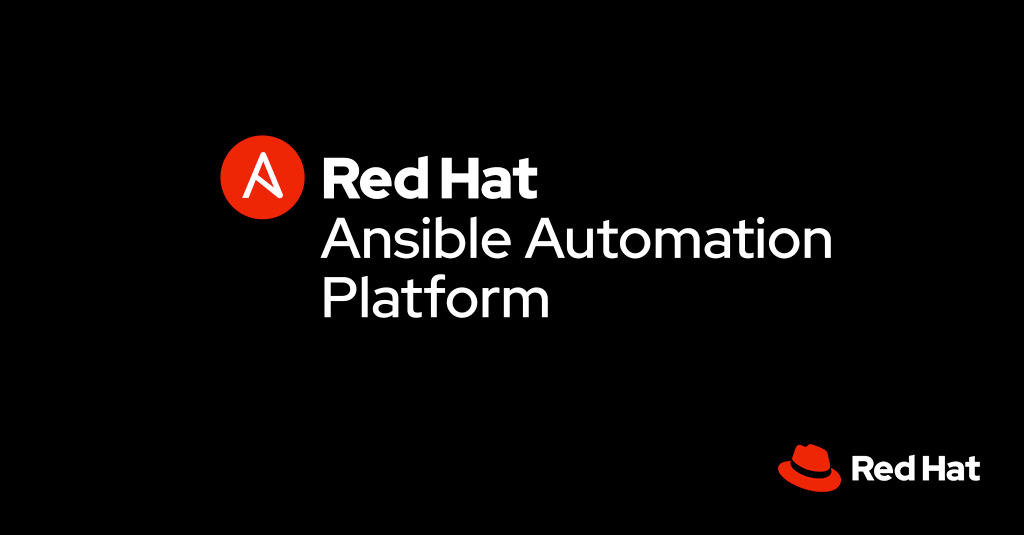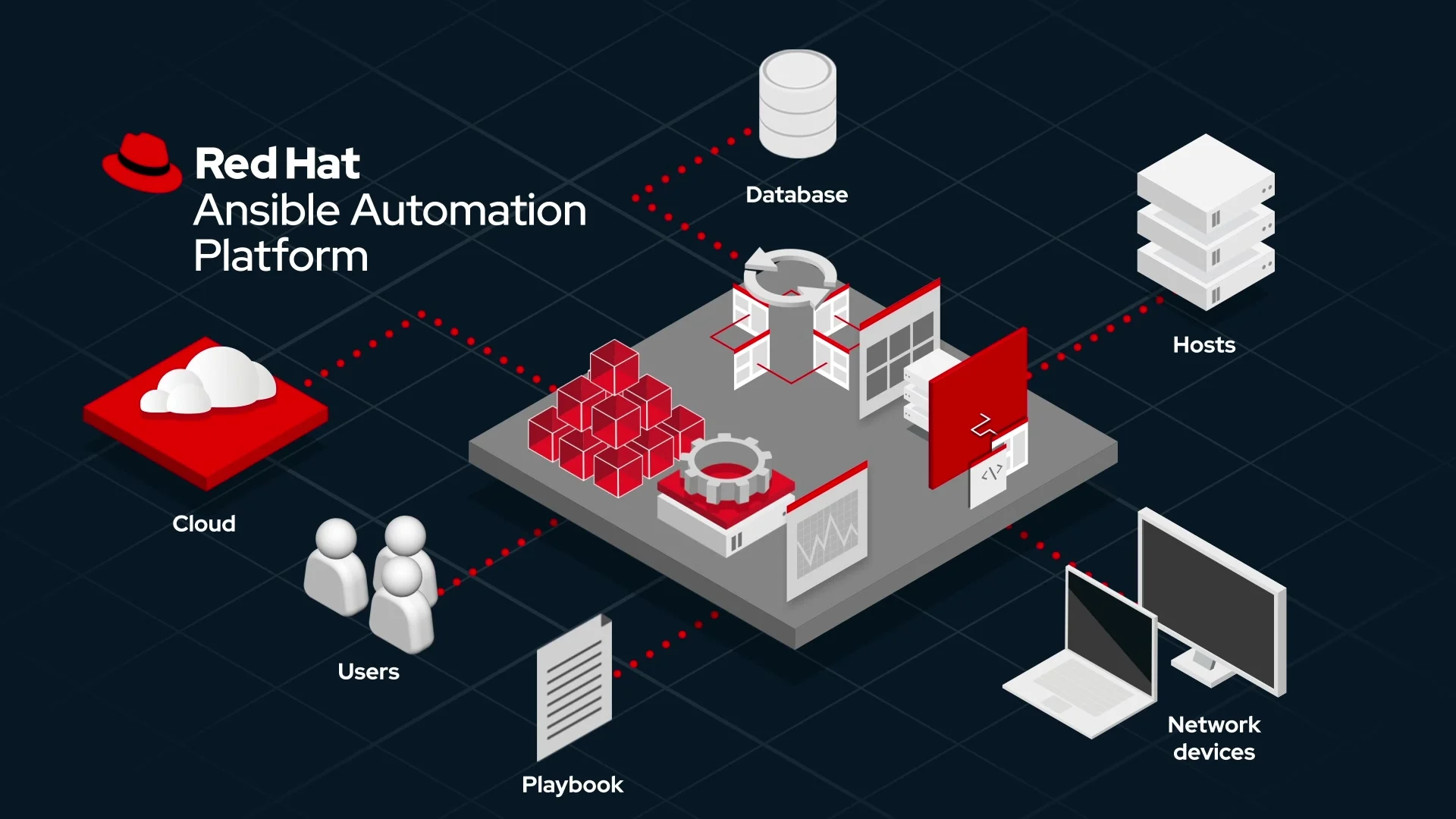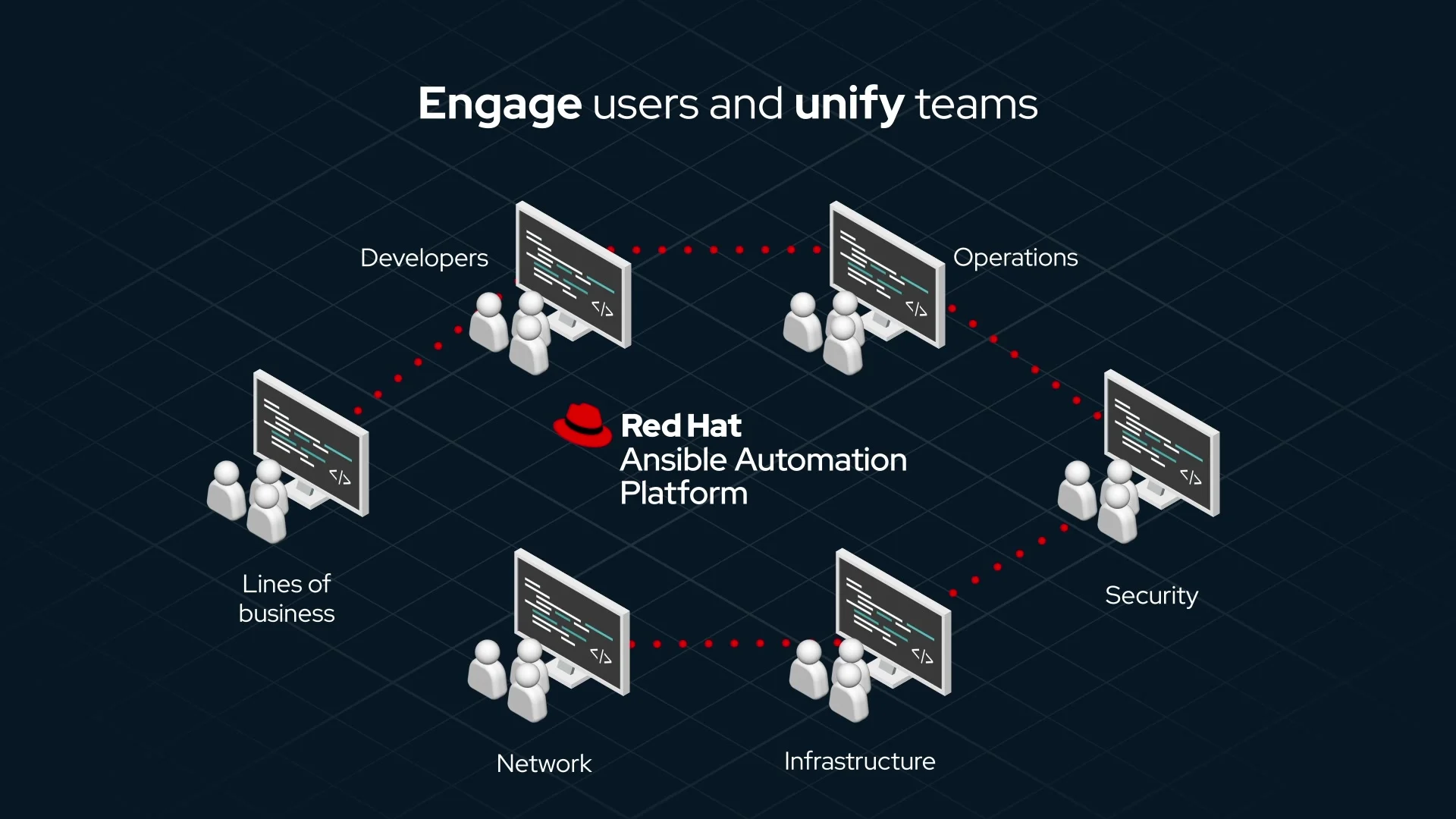Red Hat Ansible Automation Platform
Red Hat Ansible Automation Platform is a solution designed to effectively manage complex workloads and processes in today’s IT environments, where automation plays a critical role.
This text will provide a detailed assessment of the technical features, use cases, advantages, and licensing structure of the Ansible Automation Platform.
Technical Features of Ansible Automation Platform
Ansible Architecture and Operational Principle
Ansible has an agentless architecture, meaning it doesn’t require any additional software to be installed on the target systems. The fundamental operational principle involves executing automation by transmitting tasks defined in Playbooks, written in the YAML language, to the target systems.
Inventory Management ve Dynamic Inventory
- Inventory Management: Ansible supports Inventory files used for managing systems. This allows the grouping and organized management of systems to facilitate their administration.Dynamic Inventory: Ansible effectively manages dynamic structures, such as cloud environments, by supporting dynamically generated inventory configurations.
Ansible Modules ve Roles
- Modules: Ansible boasts an extensive library of modules designed to perform tasks across various areas, including operating systems, network devices, cloud providers, and more.Roles: Roles, which make Ansible Playbooks more modular and sustainable, are often used to handle repetitive tasks more efficiently.
Use Cases and Advantages
IT Infrastructure Automation and Configuration Management
Ansible is a powerful tool for managing IT infrastructure. It offers advantages in configuration management, service deployment, security updates, and sustainability.
Application Deployment and Container Orchestration
Ansible can accelerate application deployment processes and integrate seamlessly with container orchestration platforms.
Security and Compliance Automation
The enforcement, updating, and management of security policies and compliance can be automated with Ansible. This ensures consistency across systems.
License Models
Red Hat Ansible Automation Platform Subscription Model
Subscription Model: Red Hat Ansible Automation Platform is built on a subscription model. Users can benefit from all the features of the platform for a specified period.
Premium and Standard Subscription Options
Premium Subscription: Includes additional features, security updates, and support services from Red Hat.
Standard Subscription: Encompasses basic Ansible features and is generally suitable for smaller-scale applications or projects.
Red Hat Ansible Tower and Additional Modules
Ansible Tower: As a part of the Red Hat Ansible Automation Platform, Ansible Tower provides a centralized management and control interface. Tower makes it easy to plan, track, and manage large-scale automation projects.
Additional Modules: The platform can be extended with additional modules and integrations. These modules offer users flexibility to meet specific requirements.




